Text
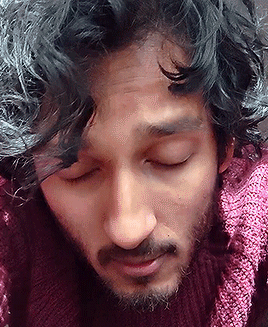
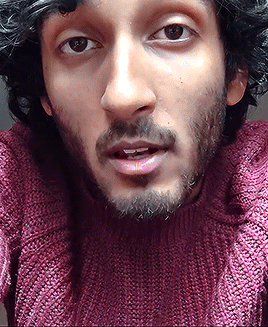
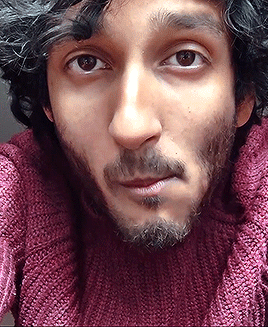

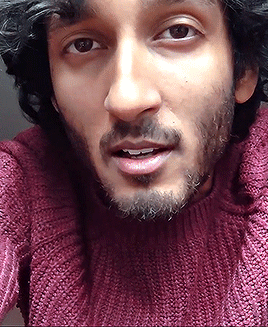

Actor Assad Zaman performs Shakespeare's Sonnet 19, in lockdown.
120 notes
·
View notes
Note
Hey, sorry, I just saw a post where you mentioned Anne Rice having abuse apologia (pedophilia and incest) in her work and I was wondering if you could explain that a little more? I’m kind of afraid to google it
hi! i assume you’re referring to my post on the show’s treatment of incest as a theme?
in any case, i hope that i can clarify a little. i’m actually gonna turn to a couple academic sources, because i’m lazy and i don’t feel like writing too much.
but, before i even get into the books, some background on anne rice.
while i do believe rice's fictional work does reproduce a discourse of abuse apologia, particularly with regards to pedophilia, and that you can arrive to that conclusion simply from reading the text, without any extraneous knowledge about the author, ultimately my opinion of rice’s fiction is inseparable from my knowledge of her real-life beliefs, more specifically, her defense of child molester carleton cajdusek and of a bdsm erotica novel about thomas jefferson and sally hemings.
in august 1997 she left this message on her "fan voice mail" still transcribed and public on her official website as it was at the moment of her death, over 20 years later:
O.K. I just read a book I recommend. It's called THE DEADLY FEAST by Richard Rhodes. The book centers around a man named Carleton Gajdusek. Carleton Gajdusek is a Nobel Prize winner and he's in prison--apparently for fondling a 14 year old in a shower. I have not seen the court record and I'm not in any way qualified to judge what goes on. All I want to say is that I highly recommend that you get the book. That the contribution of Carleton Gajdusek to medicine and to science has been fantastic and that I personally am looking into the whole question of child molestation, children's rights, because it concerns me. I remember being a young adult, and I remember being real angry that I wasn't allowed to do things that other adults were doing. I was working full time and I was living in a rooming house and I didn't like being classified as a teenager, because somebody wanted to sell me something expensive. I know I sound angry--I am. I am angry. But we've got to revise our concept of teenagers in this country. If we want to stop the crime in this country we've just got to realize that 14 and 15 year old people are adults, they are not children. And leading them to believe that there is a fundamental difference between play killing and real killing.
in 2015, an author by the name of "Fionna Free Men" published on amazon an ebook called Thomas Jefferson's Mistress, a "Werewolf Fetish Vampire MILF Sex Slave" [sic] about sally hemings, which you can see on webarchive here. author jenny trout published a call to boycott this book, and anne rice in turn called for people to organize against this boycott. there are screenshots and more details here. the situation isn't as clear cut as anne rice going on record to say writing bdsm erotica of a real enslaved child's systematic rape and abuse by the grown man who owned her is perfectly okay, but that she of all people would use her platform to speak up in defense of this bullshit, in my opinion, speaks to how little her ideology had changed since 1997.
i’ve failed to find a full copy of Anne Rice and Sexual Politics: The Early Novels by James R. Keller (and i would be endlessly grateful to anyone who found it for me), but this extract articulates my position fairly well —that is, that you can’t separate the art from the author when the author so intentionally sought to make herself one with her art:
In Michael Riley's Conversations with Anne Rice, Rice asserts that she finds the pictures of naked children in Vogue "very erotic." She then goes on to describe the "sensuous enjoyment" that she experiences when showering her children with kisses and hugs, initially a rather bold admission from a mother and a mainstream writer. However, in her subsequent explanation, she very rapidly distances herself from any impropriety, so much so that she completely eviscerates the concept of the erotic, implying that she means nothing more unconventional than maternal affection, an interest in watching her son grow “big and strong". The backpedaling is very clear in the exchange. The author wants credit for the shocking suggestion, but she does not want to face the social stigma that would attend such an admission. (...) the author wants to raise eyebrows and to perpetuate an outrageous public persona, and yet at the same time, she does not want to be taken seriously. In her fiction and in her initial assertions about children, she appears to be endorsing pedophilic desire. (...) The author even offers a defense of such sexual desire in her biography Prism of the Night, where she suggests that some children are mature enough to negotiate a sexual relationship with an adult and that sometimes the child is even the aggressor. If Rice were to leave these ideas in the world of her fiction, there would be no issue. However, she clearly considers the idea a philosophical position about sexual repression in our society, and she even flirts with the concept in the public characterizations that she makes of her family. Yet as with other issues, the ideas are not ones that she is entirely capable of owning. (...) The argument that she is not obliged to be what she writes does not particularly apply because authors of erotica have often been defined by the stigma associated with their subject. Also, the effort to define her public image as an eccentric and a sexual dissident erases the dividing line between her fiction and her reality.
he goes on to put rice’s eroticization of pedophilia within the chronicles in context, breaking down the unmistakably homophobic rhetoric that permeates the entire series, in a couple of pages which i found to make a very solid argument:
Here we must move away from our concentration on family politics to address those myths that are commonplace within right-wing, homophobic discourse. Anne Rice's The Vampire Chronicles perpetuate many of the most troublesome and hostile stereotypes, even those that have proven most effective in impeding the progress of homosexual demands for social equality. Perhaps the most destructive of all heterosexist delusions involves the association of gays and lesbians with pedophilic desire. (...) In such a volatile political environment, Rice's portrayal of same-sex desire between adults and adolescents, a passion that seems to lie at the heart of her vision of vampirism, should not escape interrogation.
george haggerty makes a similar argument, and you can read his essay here:
Rice makes it immediately clear, however, that this world of male-male desire cannot be satisfying. For all the homoerotics of these volumes, Rice seems unable to create a bond between two men that is more than the symptom of a corrupt and corrupting culture.
there’s still something to be said about how the vampires in the chronicles serve as both object of abjection and subjects of identification, which the next essay i’ll mention touches on but doesn’t explore in depth. in the vampire chronicles, vampires are meant to be at once repulsive and attractive to readers, functioning as sympathetic heroes while they behave as evil monsters.
this anti-hero role allows rice the kind of plausible deniability that keller lays out: her vampires can be a homophobic caricature and a (poor) attempt at “gay representation” at once, because it’s up to the reader to decide whether to identify with the monster or reject this identification. this is a technique that vladimir nabokov executes very well in lolita, where we are compelled to identify with the pedophile narrator so that we can understand a predator’s mindset, and there are moments in the chronicles where i’d argue that rice pulls it off, but she overwhelmingly fails in her attempts to walk that line, and the overall result of the series is one that reads as straightforward abuse apologia. i’ll circle back to this later.
now, back to the specific topic of pedophilia and incest.
while i wouldn’t say i agree with every strand of reasoning in this essay, and it’s definitely very 1990s sex wars feminism, i think “Abuse and Its Pleasures: Compensatory Fantasy in the Popular Fiction of Anne Rice,” by Annalee Newitz breaks down the issue very well in these choice passages:
…the heroes in Rice’s novels have in common one basic trait: they feel marginalized or abused, but learn to use their victimhood as a form of empowerment. Her characters often become powerful, wealthy, or famous by taking up the tools of their oppressors—and revaluing their victimization as something pleasurable and special. (...) By representing abuse within a contained, fictionalized setting, one might say that Rice generates a therapeutic “safe space” in which readers can experience and master their anxieties about abuse. And to a certain extent, I want to allow for this possibility in my analysis. But there is also something deeply troubling about the way Rice invites readers to deal with their anxieties. For ultimately she offers what I will call an “anti-therapeutic” resolution to abusive situations: her abused characters gain power by sustaining and even celebrating their trauma.
newitz says:
Louis and Claudia become inseparable, and Louis considers their relationship to be a union between “Father and Daughter. Lover and Lover” (Interview). Rice offers many descriptions of Claudia’s childish sensuality, heightening our sense that it is precisely her status as a child that makes her so sexually alluring to her “parent” Louis.
and later, writing in the sibling, parent-child, and cousin incest in the mayfair witches books, she adds:
By blurring the line between parent and child, Rice generates a fictional space in which children can be cast as perpetrators of child abuse.
this essay precedes the publication of the vampire armand by a couple years, but the rhetoric in that book, and the way armand is written from the vampire lestat onwards all fall squarely within the pro-pedophilia discourses that newitz and keller above describe. armand is “seductive” and “irresistible” precisely because of his “youth” and “innocence,” elements which become integral to his character as the chronicles go on. the first section of his solo novel is dedicated to lengthy erotic descriptions of his sexual encounters with marius, which are presented as pleasurable and desirable and, of course, distinctly different from the violent rapes and beatings that he’s been through.
marius is his owner but a benevolent one and, like mona mayfair, armand is made out to be a sexually precocious child that seeks out and seduces his abuser, demanding for their sexual intimacy to grow and eventually asking to be made into a vampire.
while there are moments in the book that invite a reading of armand as a victim in denial, presenting the reader with a disfigured perspective of the abuse he endured to cope with his own trauma, once put in context with rice’s other work and her personal politics it’s impossible to interpret this novel as anything but propaganda: she was very aware of her platform and reach when she publicly stated that she believed children of fourteen should legally be considered adults when it came to sexual consent, and not two years later she wrote the vampire armand. the connection can’t be ignored.
another aspect of her work that i think could lend itself to a dual interpretation if read in isolation, but ultimately only serves as evidence of the deeply-held ideologies she’s reproducing in her books, is her sympathetic portrayal of abusers. again from newitz:
While Lestat is a cold and manipulative character in Louis’ story, we discover in The Vampire Lestat that Lestat has himself been used and hurt. Like Lasher, Lestat tells a story about his painful intimate relationships which is intended to solicit readers’ sympathy and make his crimes against Louis and Claudia both understandable and forgivable. In these monster stories about child abuse, all of the characters ultimately appear to be victims in the end. Rice invites readers to feel deeply ambivalent about characters who are abusive: at any moment, we might discover that these abusers are victims too, and therefore we cannot hold them responsible for their cruelty to others. The safe space where Rice stages and masks sexualized child abuse is therefore a safe space for both perpetrators and victims. It is a space where the line between victim and perpetrator is impossible to draw, and therefore Rice makes it impossible to judge whether or not child abuse is in fact abusive at all.
(you can find the full book, Creating Safe Space: Violence and Women's Writing, ed. Tomoko Kuribayashi and Julie Tharp, on anna’s archive.)
yes, yes, depiction is not endorsement and so on and so forth. of course, abuse is one of the most prevalent themes in the gothic and there’s no doubt that making the monster a sympathetic object of desire is a staple of the genre. it’s up to us to triangulate the topics portrayed in her novels, the treatment these topics receive, and what we know of rice’s real-life beliefs to interpret her work.
one of the aspects we can analyze when looking at treatment are narrative patterns and, while simplistic, punishment-reward goes a long way. in rice’s vampire chronicles, victims of rape and abuse must fit one of a very narrow selection of roles. keep in mind that the chronicles both make vampiric assault akin to and distinct from sexual assault, so the allegory gets muddy at times, but here’s how i would break it down:
good survivor, gets rewarded: they are violated against their will and firmly refuse the assault, but they don’t overindulge in “whining” and dwelling on what’s happened to them, insteading choosing to embrace it and move on (e.g. lestat, david, marius)
bad survivor, gets punished: either they “ask for it,” sometimes changing their mind at some point, which makes them “deserving” of the bad things that happen to them following (e.g. lewis, merrick, armand); or, particularly in the case of children, even if they did not “ask for” the initial violation (e.g. claudia, armand, merrick) they are later revealed to be, as i mentioned, cunning and seductive, and thus similarly “deserving” of their downfall
revenge on the abuser, gets punished: following from the first division, “bad survivors” are shamed, punished or outright destroyed for taking revenge on their abusers or for wanting to overthrow the abusive institution (e.g. claudia, akasha)
forgiveness for the abuser, gets rewarded: on the other hand, “bad survivors” get a sort of narrative redemption, and “good survivors” cement their position in this role, by forgiving and loving their abusers, often recognizing the abuser had only good intentions all along (e.g. lewis with lestat, lestat with magnus, armand with marius)
these overarching discourses that run through the entire chronicles, coupled with the eroticized depiction of abuse and particularly child abuse, to me solidify the interpretation of the chronicles as uncritically reproducing abuse apologia and pedophilia apologia as the only viable one. trying to read the chronicles as a whole as a critical, self-aware narrative simply doesn't hold.
however, i think there might be more merit to an interpretation of rice's treatment of incest as critical. but the overwhelming fetishization and eroticization of the subject across her books, alongside with the portrayal of most of her victims of incestuous abuse as seductive and, if not “initiators,” then willful participants, ultimately leads me to conclude that, if she was trying to construct a purposeful problematization of incest, she failed.
(now we’re circling back around!)
just like she failed in her attempts to toe the line between a sympathetic villain who’s portraying their victim from a distorted perspective, and outright villainizing and narratively punishing said victims.
(not that i believe all victims should get happy endings or all abusers should get their narrative comeuppance, of course. actually, let me make a general disclaimer, since i’m releasing this answer into the wilderness: going back to nabokov, there are people who read lolita all the way through and still came away from it still identifying with humbert humbert, and i don’t think that’s a failure in the writing, but in the reading. not even the most skilled of writers are spared from being misinterpreted… and anne rice wasn’t among the most skilled of writers, though she did have a couple strokes of genius. art as a whole would be poorer if bad artists didn’t get to make and share stuff, just like it would be poorer without haters and critics. so anne rice got to write some ideologically indefensible bullshit, and we get to call her an abuse apologist on the internet! such are the wonders of free speech.)
anyway, i think that’s pretty much all i have to say on the topic, so, sorry for the wall of text, i hope this answered your question. and if it didn't, or if you just want to read a bit more, i definitely think newitz’ piece and the part of keller’s essay “Interrogating the Vampire: Heterotextuality and Queer Reading” that’s available for preview here are both worth it.
ps: and again, if anyone can find me that book, or that essay, in full, i’m very curious to know what conclusions the author reaches.
#i stopped reading the book when louis started all that pedo conversation towards claudia#i couldn't go forward#disgusting#anne rice#interview with the vampire
152 notes
·
View notes
Text
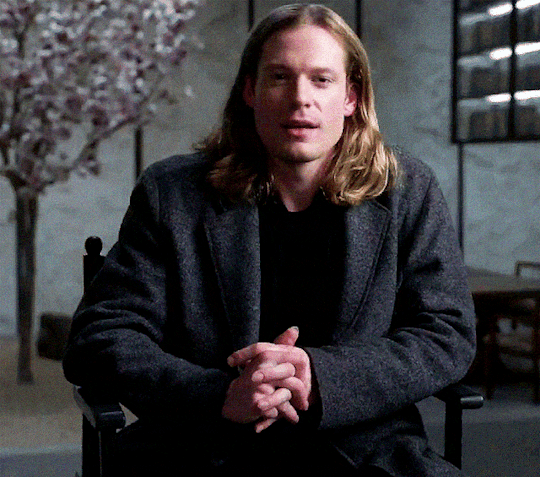
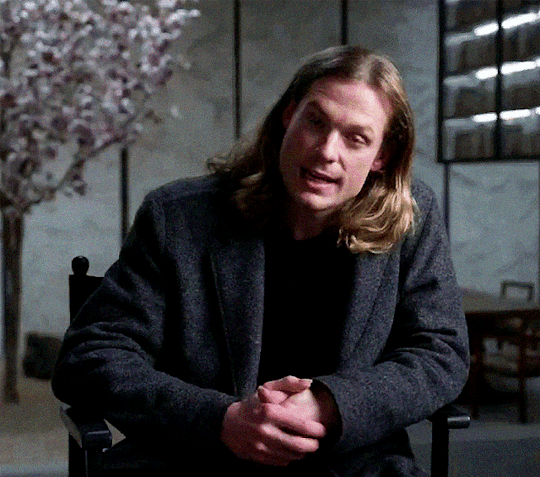

Sam Reid
Watching #InterviewWithTheVampire is better with a companion. 🩸
396 notes
·
View notes
Text
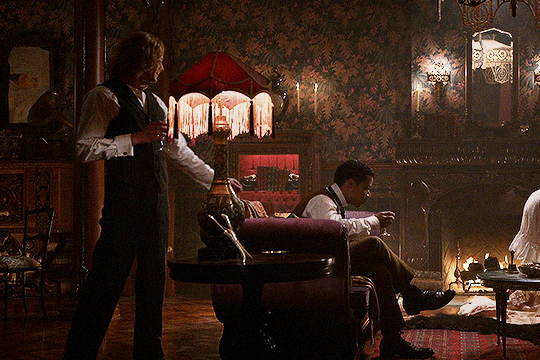

637 notes
·
View notes
Text
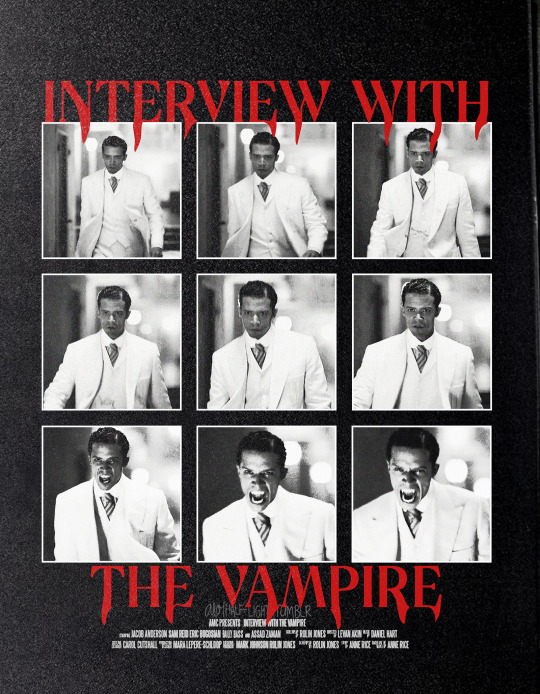
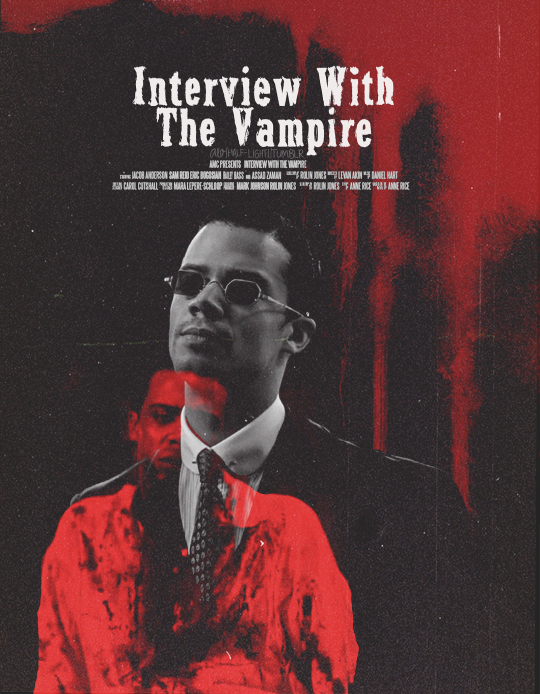
🩸🧛🏾♂️
(link to retweet)
836 notes
·
View notes
Text

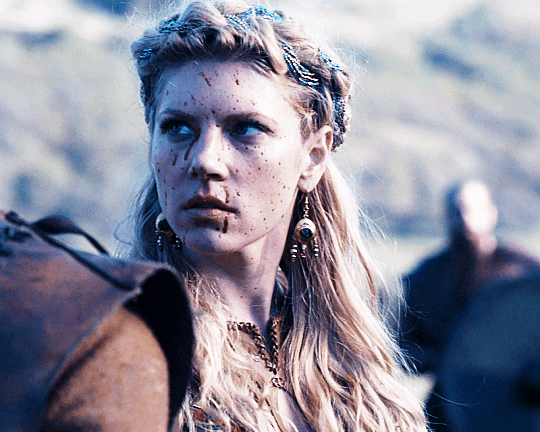
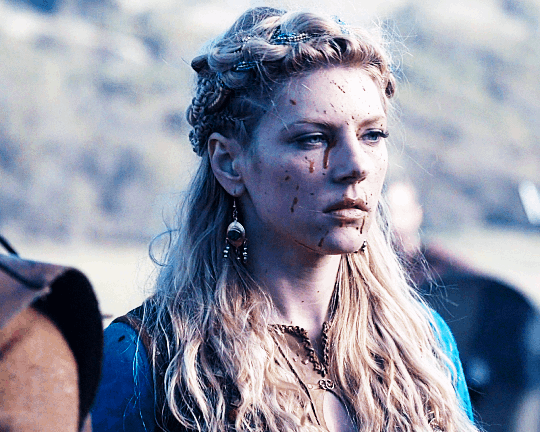
I should have done this a long time ago, Einar.
259 notes
·
View notes
Text
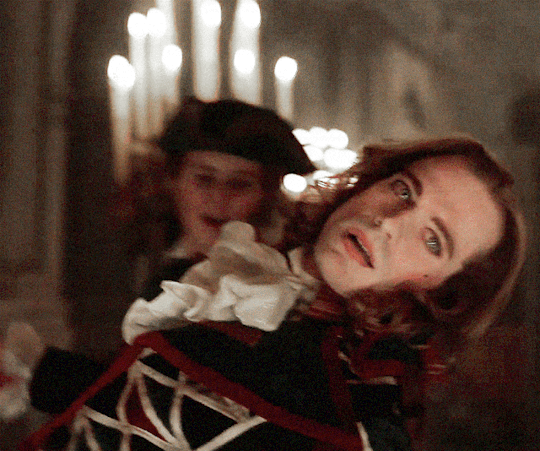

Sam Reid as Lestat de Lioncourt
INTERVIEW WITH THE VAMPIRE SEASON 2 (2024).
1K notes
·
View notes
Text
Lagertha and Gyda making material on a loom
season 1 episode 1
‘RITES OF PASSAGE’








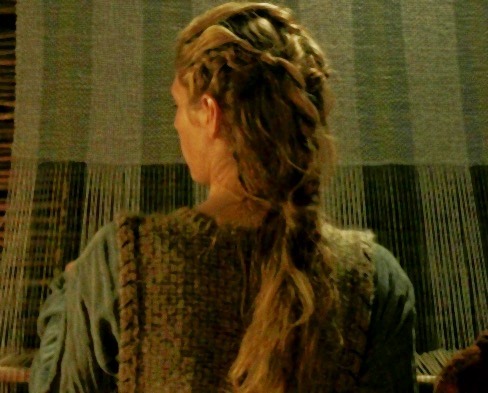

17 notes
·
View notes
Text


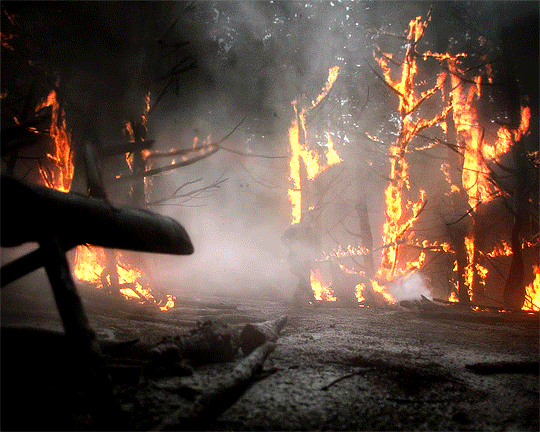
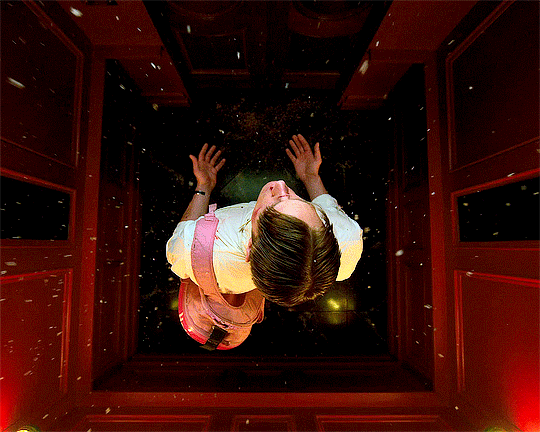

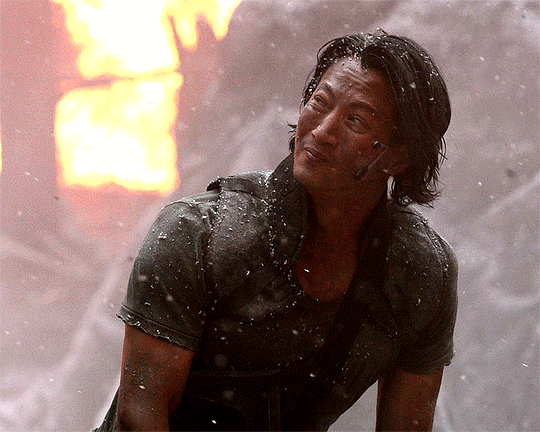
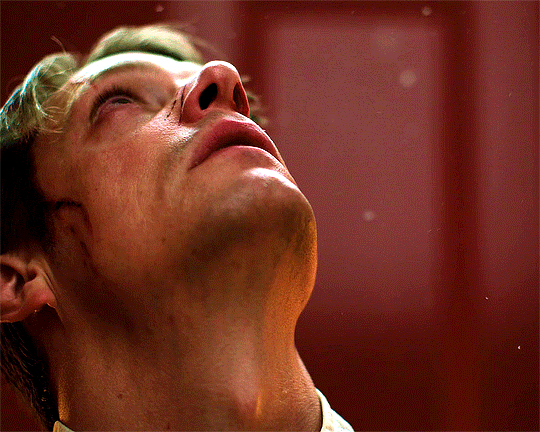
Altered Carbon (2018-2020)
|| Out of the Past (1.01)
565 notes
·
View notes
Text
FYI, IWTV is (finally) coming to Brazil
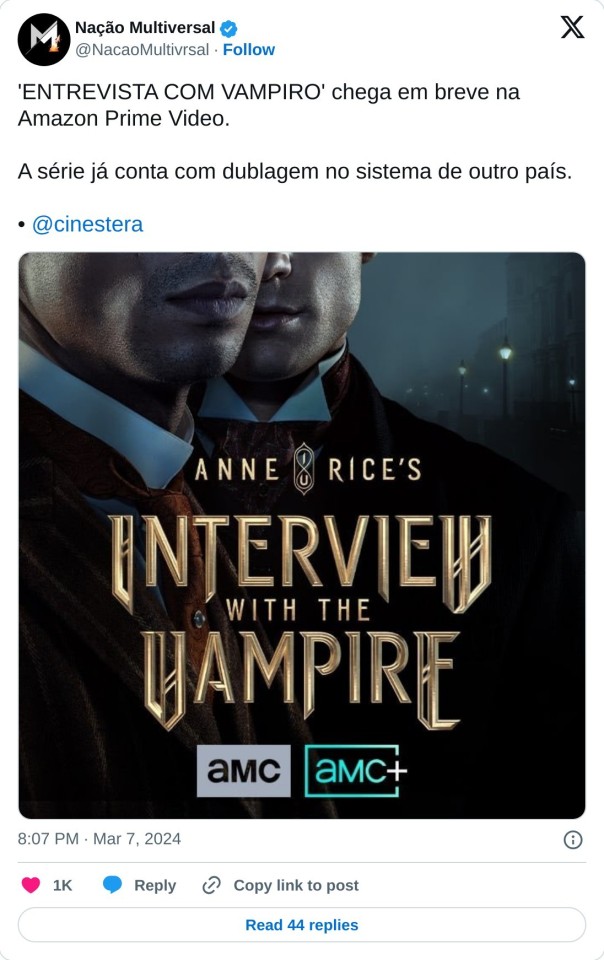
31 notes
·
View notes
Text
Lagertha tending to Ragnar’s wounds at Floki and Helga’s house after Ragnar fought with Earl Haraldson’s men.
season 1 episode 5
‘R A I D’
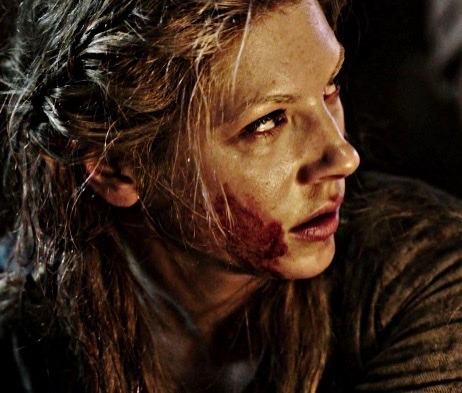

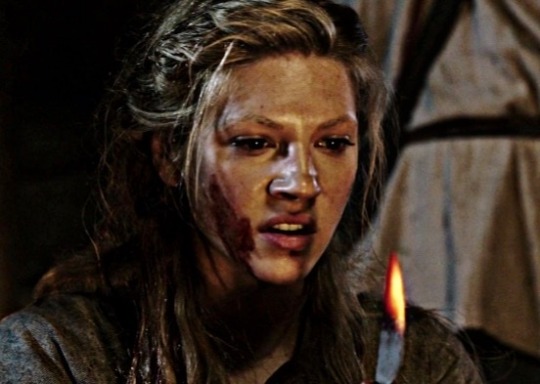

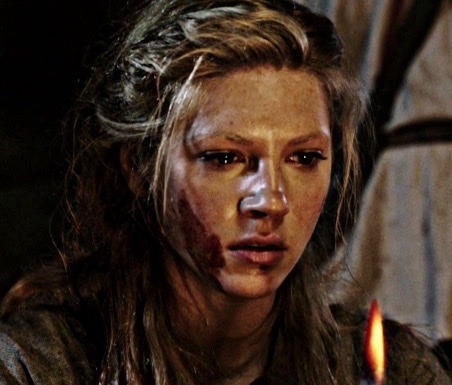
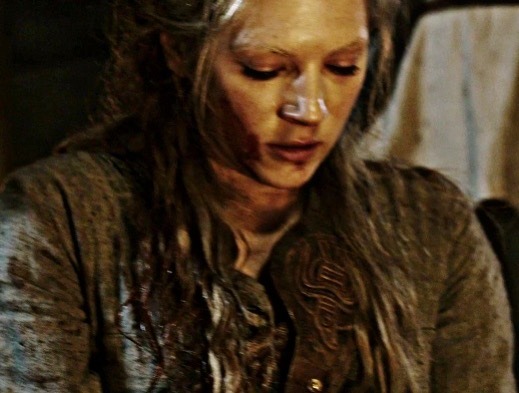
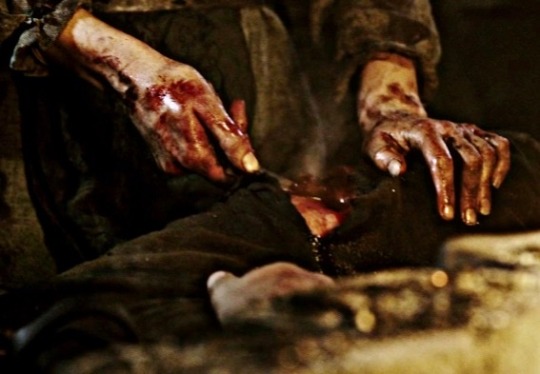

8 notes
·
View notes
Text
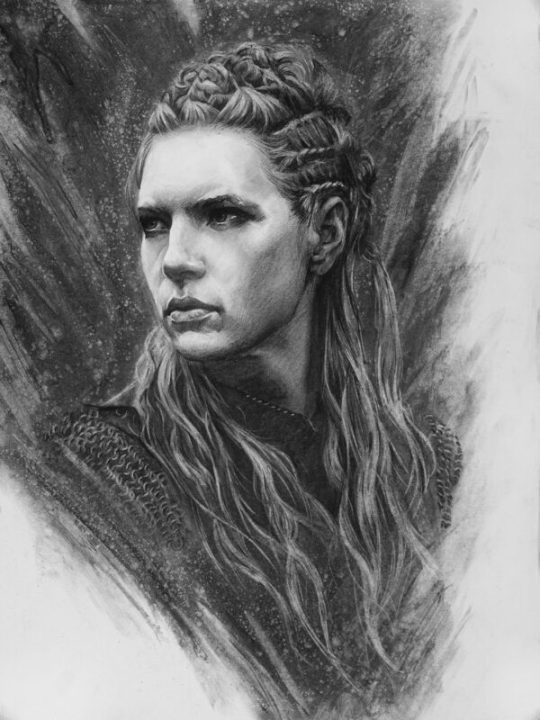
Lagertha
19 notes
·
View notes
Text
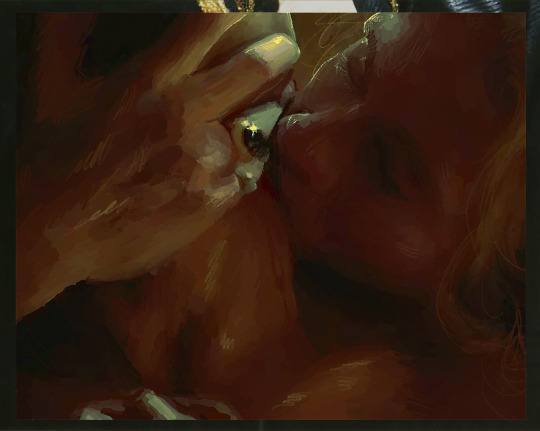
808 notes
·
View notes
Text
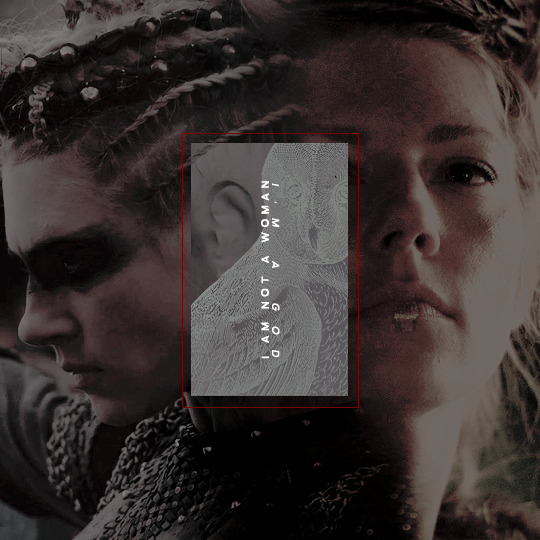
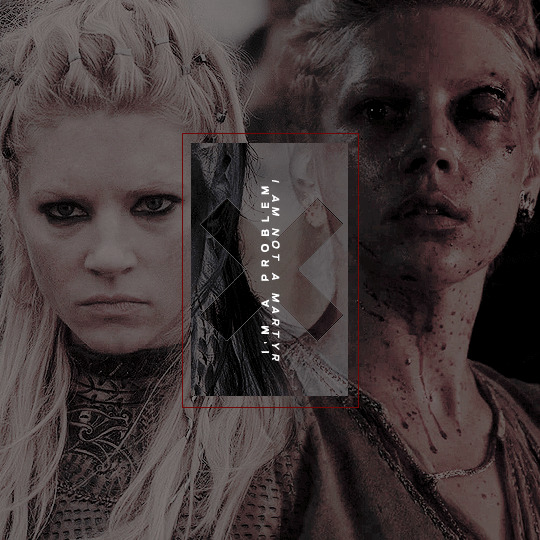
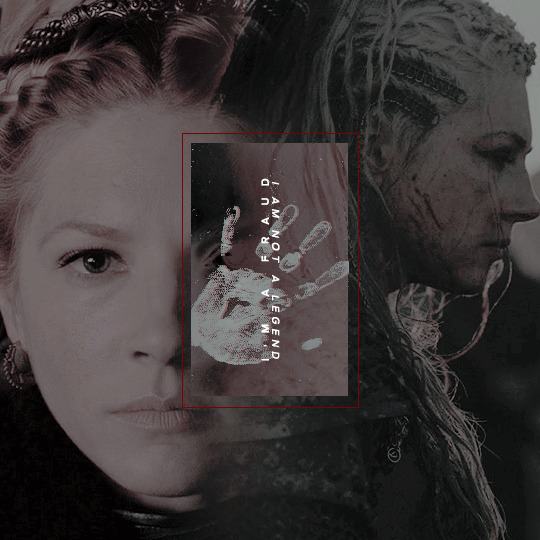

Keep your heart, 'cause I already got one
76 notes
·
View notes
Text
I'm not normal when it comes to Daniel Molloy and Armand. I'm always screaming when i see a new (and old) content about them, and i didn't even read the books!!
0 notes


